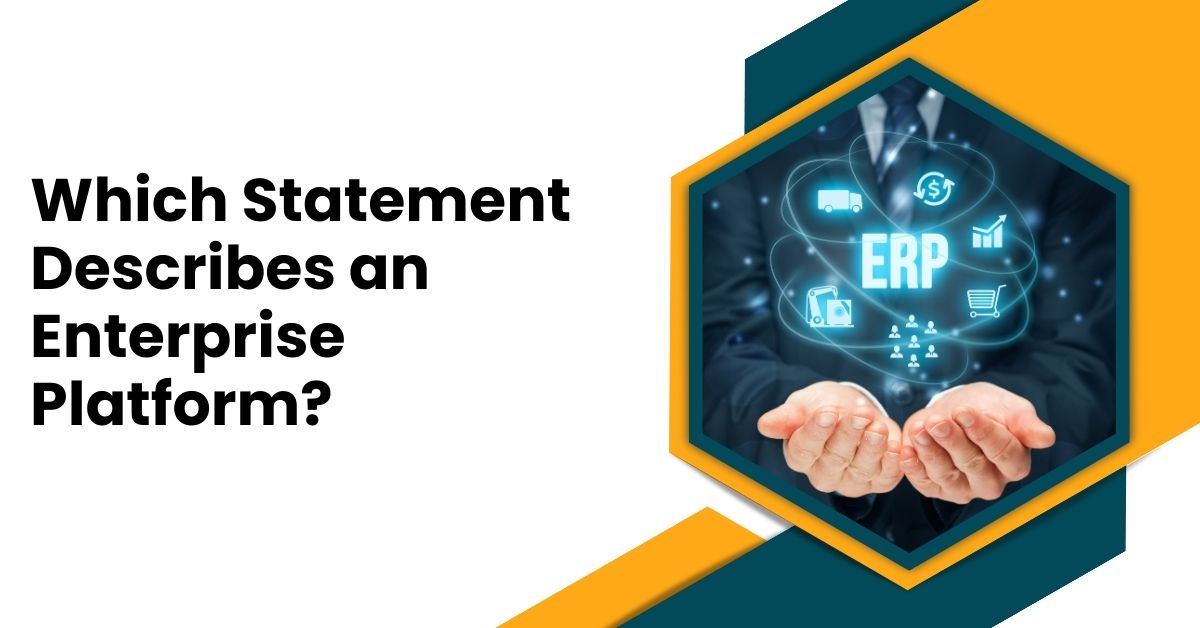In today’s digital landscape, businesses rely on enterprise platforms to streamline operations, enhance productivity, and drive innovation. But what exactly defines an enterprise platform? Which statement best describes its role and functionality?
Understanding an Enterprise Platform
An enterprise platform is a comprehensive software solution that integrates various business processes and applications into a unified system. It serves as the backbone of an organization’s IT infrastructure, enabling seamless communication, data sharing, and workflow automation across different departments.
A few key characteristics of enterprise platforms include:
- Scalability: They support growing business needs and increasing user demands.
- Integration: They connect with various tools, applications, and databases.
- Security: They provide robust security features to protect sensitive data.
- Customization: They allow businesses to tailor features according to specific requirements.
- Automation: They streamline repetitive tasks and improve efficiency.
Best Statement to Describe an Enterprise Platform
Among various descriptions, the most accurate statement that defines an enterprise platform is:
“An enterprise platform is a centralized system that integrates multiple business applications, facilitating data exchange, automation, and collaboration within an organization.”
This statement highlights the essential role of enterprise platforms in modern businesses—acting as a hub that connects different departments and processes, ensuring smooth operations and informed decision-making.
Examples of Enterprise Platforms
Several well-known enterprise platforms are widely used in different industries. Some notable examples include:
- Salesforce – A customer relationship management (CRM) platform that helps businesses manage interactions with customers.
- SAP ERP – An enterprise resource planning (ERP) platform that integrates finance, HR, supply chain, and other core functions.
- Microsoft Dynamics 365 – A suite of business applications for sales, marketing, finance, and operations.
- Oracle Cloud – A cloud-based enterprise platform offering solutions for data management, applications, and analytics.
Why Businesses Need an Enterprise Platform
Organizations that implement enterprise platforms benefit in several ways:
- Improved Efficiency: Automating workflows reduces manual efforts and speeds up processes.
- Enhanced Collaboration: Teams across different departments can work together seamlessly.
- Data-Driven Insights: Access to integrated data helps businesses make informed decisions.
- Cost Reduction: Optimized operations lead to better resource utilization and cost savings.
- Better Customer Experience: A unified approach enhances service delivery and customer satisfaction.
Final Thoughts
An enterprise platform is more than just software—it’s a strategic investment that drives business growth and operational efficiency. By integrating various applications and automating processes, these platforms empower organizations to stay competitive in a fast-evolving digital world. When selecting an enterprise platform, businesses should focus on scalability, integration capabilities, and security to maximize their success.



